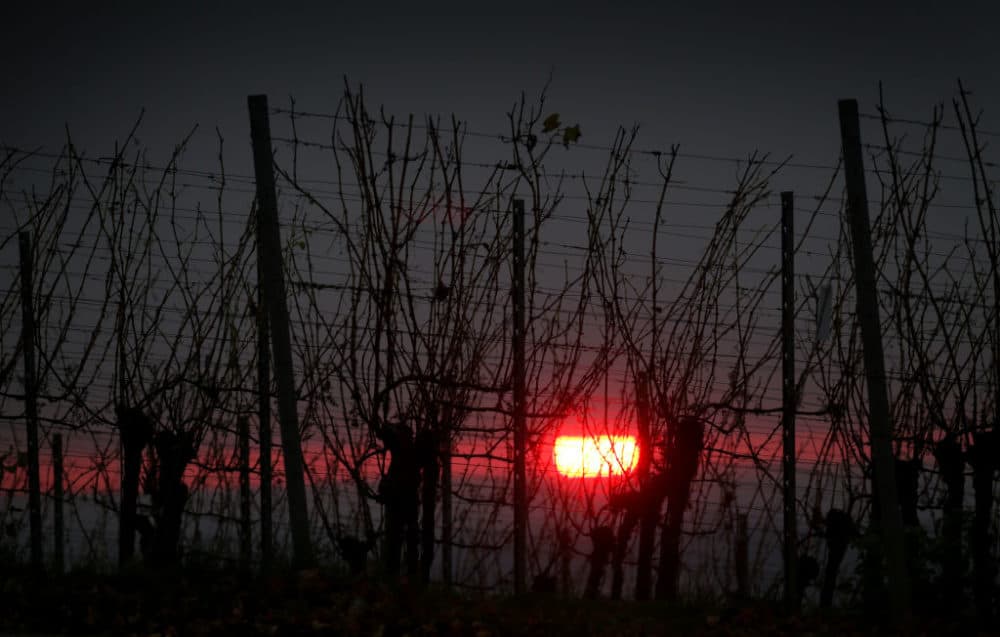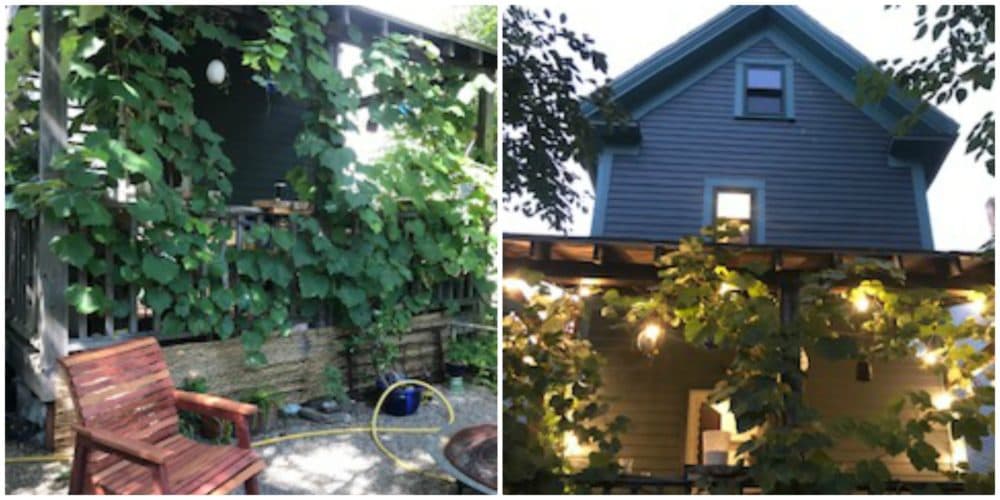Advertisement
Commentary
There Will Be No Sweet Harvest In This Bitter Year

I am thankful for so much in this apocalyptically hard year. And yet this year, there was no harvest.
After many seasons of fruit, my Concord grapes refused to produce.
All summer long, the green leaves kept growing, reaching up towards the sun, blithely unaware of rising COVID-19 rates, rising unemployment rates, rising conflict. Or so I thought.
By mid-summer, there was a worrying lack of buds. Then, small spikes on the underside of lush leaves, which I learned are actually a kind of fly (a grape tube gall-maker called Ampelomyia viticola), but generally harmless to the vine. Since we've had a pandemic, wildfires, earthquakes and leadership not unlike the biblical Pharaoh, I figured a bug infestation kept with 2020's plague themes.
If I needed this plant to fruit in any year, it was this one. I cried next to that grapevine while taking a phone call, as a friend told me of their spouse’s unexpected death. I stood beneath that grapevine as helicopters hovered overhead, their frequent buzz accompanying yet another necessary protest over yet another unnecessary death of a Black person killed by police.
In our small Boston yard, that grapevine was a lifeline to future sweetness. But come fall and the time to harvest, there was none.

Maybe others are turning to Thanksgiving this year with more thanksgiving than I am. Mostly, I come with grief over empty chairs and family members who must be kept at a distance to be kept safe. My Post-it notes with the names of the dead have multiplied. I am still trying to make sense of the enormity of death.
As a preacher, I trade weekly in metaphors. But in my backyard, this metaphor was defying me, unbending to my need for sweet harvest from this bitter year.
All leaves; no fruit.
I’ve long loved this local metaphor for the endurance and ingenuity it takes to find what is just right in a particular place and time. Ephraim Wales Bull took years to cultivate a grapevine that could withstand our harsh New England winters, grow in our rocky soil and fruit during our short summers. Over six years of labor, Bull attempted 22,000 varieties of cross-fertilization in Concord, Mass. to finally originate his grape in 1849. Only after that did the Concord grape take off as an easy to grow source for the teetotalling Welch’s communion juice, Grapelade and jelly.
But there were no grapes this year. No living thing can constantly be productive: not you, not me, not even a grapevine.
I will give thanks for the vine that refused to fruit and pray we all make it to another spring to start again.
The lie I tell myself, the lie most often served up in this country by our focus on Gross Domestic Product and maximizing productivity and same-day delivery, is that whatever the conditions, we can always produce. Always be producing. Always be closing. Always be harvesting. My grapevine was having none of that American prosperity gospel.
The practice of letting the soil lay fallow to rest is ancient and biblical, too. Unchecked growth is cancer.
This Thanksgiving, we will gather, but not in person. This year, I will give thanks, but not for a bountiful harvest. I am grateful simply to be alive for another year.
I do not believe in forced thanksgiving. Too often, communities that have been denied basic rights and resources have been shamed into obligatory gratitude for what ought to be minimally expected. I rebuke that lie for the infestation it is.
Genuine gratitude is a posture and orientation to the world, even a profoundly broken world. When I struggle to be grateful, I’ve learned to look closer. I can give thanks for the leaves that shaded me. I can give thanks for the harvests of years past.
I am trying to be honest in the grief and anger of what has been lost. So much, and so many have been lost this year. My intention is to hold both in each hand: the loss and the provision.
I grieve the loss of those early fall days in years past when we’ve sat under the grape leaves and shared fruit and cheese with friends, broken bread and toasted good news with a glass of wine.
And even around a Thanksgiving table with empty chairs, I will give thanks for the vine that refused to fruit, and pray we all make it to another spring to start again.
